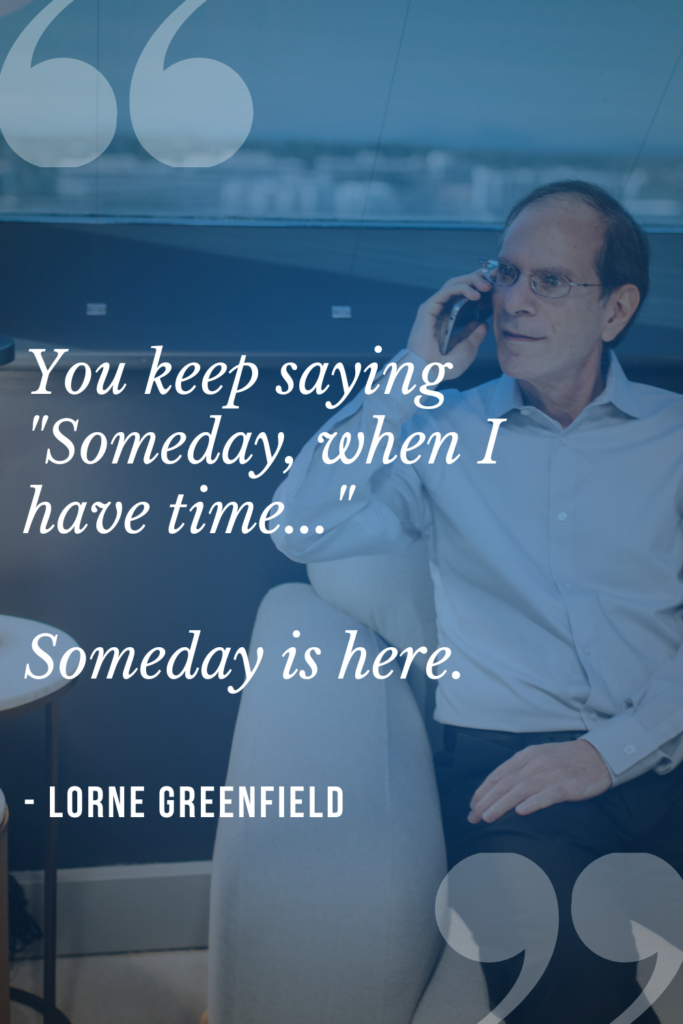We’ve written previously about how important it is to identify what you do in a typical day in your business. You also need to think critically about what you need to do and what others can take on for you. Today, we want you to do something very different – dream a little about what you want to do with the rest of your life outside of work.

What Do You Want To Do for Fun?
There’s more to life than work, and it’s the things you enjoy in your leisure time that make you a well-rounded and happy human being. How long has it been since you did something just for the fun of it? What is on your list of “Things I’ll Do Someday When I Have Time”?
You may think you need to wait to start checking things off that list, but that’s a mistake.
Cultivating relationships and interests outside of your business will help you begin to experience what life could look like in your next chapter, removing the unknown element and easing the transition from running your business. It will give you confidence that certain interests or people really are worth devoting time to, and you will discover other outside interests. Cultivating friendships takes time, as does developing skills, particularly for activities with a steep learning curve. Finally, having a robust personal life outside of work will motivate you to persevere even when the transition from business gets difficult and you’re tempted to just dive back in and take over again.
Dream a Little
What did you enjoy when you were young? I was an avid hockey player and hockey fan from my childhood on. I played for fun while an undergraduate, but stopped altogether in graduate school. In my 30s, I returned to the game, playing 5 nights a week for many years. Not only did this activity keep me active, which improved my mental abilities as well as my physical wellbeing, but it also gave me friendships and activities outside of work.
Many of the business owners I work with return to old hobbies or pick up something new they’ve always wanted to try. They take a master gardening class or learn a new language. Others launch a foundation or other charitable cause that’s meaningful and will make a difference in other people’s lives for years to come.

Here are some questions to get you started:
- What did I enjoy when I was younger that I gave up in adulthood? Would I like to go back to that? If I can’t physically do it anymore, could I teach it?
- Who made the biggest difference in my own life when I was young? How can I do the same for someone else?
- What causes am I most passionate about? How can I get involved in a tangible way?
- What have I always wanted to do, explore, or learn? What steps can I take now to make that happen?
- What are things that I can enjoy with my life partner? What are things that I can enjoy on my own?
- What does my community need that I could provide?
Decide and Take Action
Make a commitment that as you hand off responsibilities in your work life, you fill some of that free time with fun. Enroll in a class. Volunteer with an organization. Block time on your calendar to travel and play. Start experimenting to see what you find enjoyable and fulfilling in your life outside of work. This will whet your appetite for more and help you build a vision for the next chapter that doesn’t revolve around work.
Have you read our previous articles in this series on Exit Planning?
Related Articles
Get A Grip Roundtable
Does This Sound Familiar? Your business isn't as efficient or profitable as you'd like. You’re putting in the hours but not seeing the results you want. You’re stuck. You know your business has potential, but you're unsure how to take it to the next level. You’re...
Eight Ways to Exit Your Business
When it comes to exiting a business, most people assume there is only one way out: sale. But actually, there are 8 distinct ways to exit a business. Before considering your next move, it’s crucial that you understand each of these options to determine which is best...
The Formula for an Effective Exit Plan
Ask a business owner over the age of 50 when they plan to transition or exit their business, and you’ll get one of two answers:
– a blank stare, or
– “I’ll work another 5-10 years and call it quits.”(And if you ask this person again in another 5-10 years, you’ll likely get the same answer!)
The bottom line is the same – most business owners lack a plan for leaving their business. Read the article to learn what goes into an exit plan.

